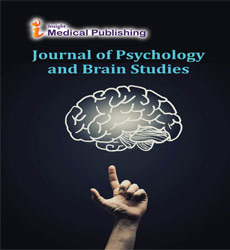The utility of psychological interventions in moderating the psychological and emotional suffering of wrongfully convicted offenders
Abstract
Wrongful convictions of criminal offences have far reaching psychological and emotional consequences on both the wrongfully convicted and their families, than meets the eye. However, there is little research on the psychological and psychosocial impacts of wrongful convictions the world over. Currently, there are over 300 American post-conviction DNA exonerations, over 1000 known exonerations in the United States and over 70 documented wrongful conviction cases in Canada (AIDWYC, 2012; Innocence Project, 2013; National Registry of Exonerations, 2013. It follows therefore, that, Africa is not an exception though not much documented empirical research findings are available.The psychological consequences of wrongful convictions include but not limited to change in self-identity, stigma, self-stigma, depression, anxiety, strain on relationships, attitudes towards the justice system, trauma and adjustment difficulties. Research in Canada has found that community members are almost unanimously in favor of exonerees receiving compensation from the government (Angus Reid, 1995; Clow, Blandisi, Ricciardelli & Schuller, 2012). Members of the public form juries (i.e., make decisions in cases involving a wrongful conviction), can influence the introduction of new policies (e.g., compensation statutes for exonerees) and are in position to help exonerees post-incarceration (e.g., hire or rent properties to exonerees). As such, public opinion regarding wrongful conviction is paramount. A sample of 11 convicted male prison inmates of C and D Class category participated in the research. All participants were from Harare Central Prison, were at least 18 years of age, had at least 7 years of sentence and had provided informed consent. The research participants were interviewed using qualitative interview guide. Findings reveal that wrongful convictions are a largely overlooked phenomenon yet poses substantial psychological and emotional toll on survivors and their families, sometimes for life if no remedial support services are rendered. Psychological services should therefore be a requirement not an option for incarcerated prison inmates.
Open Access Journals
- Aquaculture & Veterinary Science
- Chemistry & Chemical Sciences
- Clinical Sciences
- Engineering
- General Science
- Genetics & Molecular Biology
- Health Care & Nursing
- Immunology & Microbiology
- Materials Science
- Mathematics & Physics
- Medical Sciences
- Neurology & Psychiatry
- Oncology & Cancer Science
- Pharmaceutical Sciences
